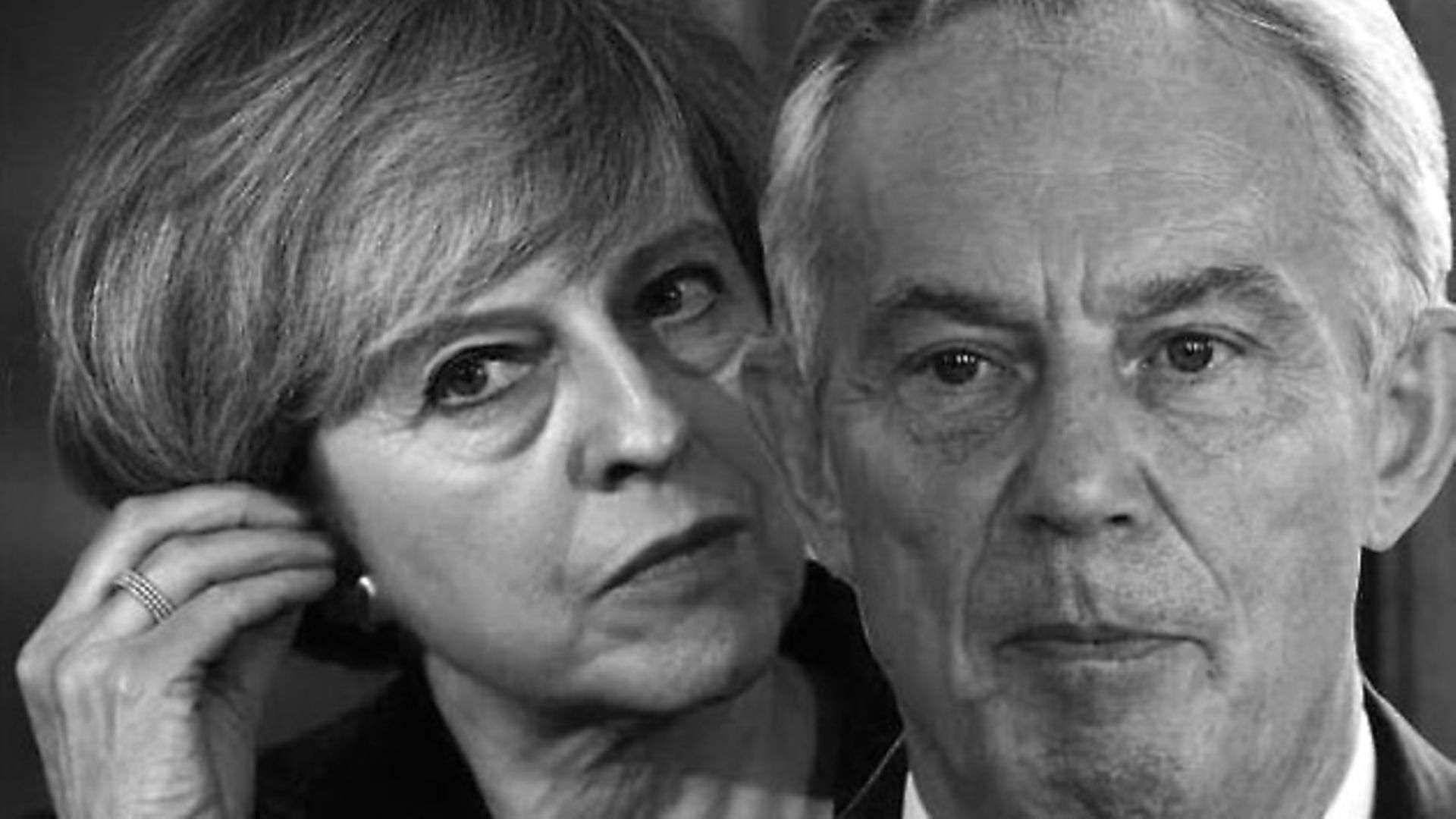
Former Prime Minister Tony Blair has launched a stinging attack on Theresa May claiming she is risking Britain’s future by forcing through a Hard Brexit.
In a speech due to be delivered to pro-EU think tank Open Britain on Friday, Blair lambasts the PM claiming: ‘This is a Government for Brexit, of Brexit and dominated by Brexit. It is a mono-purpose political entity.’
In extracts seen in advance, by The New European, he issues a blistering rebuttal of May’s Brexit policies, adding: ‘The Government are not masters of this situation. They’re not driving this bus. They’re being driven.’
And attacking the Prime Minister directly he said: ‘The PM says she wants Britain to be a great open trading nation. Our first step in this endeavour? To leave the largest free trading bloc in the world.
‘She wants Britain to be a bridge between the EU and the USA. How to begin this worthy undertaking? To get out of Europe thus leaving us with no locus on one side of the ground where this bridge must be constructed.’
He also warned against Britain becoming an ‘offshore free market hub’ saying this could damage the NHS and ultimately lead to a private rather than public health system.
‘The economic future which could work outside of Europe is exactly the low tax, light regulation, offshore free market hub, with which Mrs May threatens our European neighbours, but which to the Brexit ideologues is a promise of things to come. This free market vision would require major re-structuring of the British economy and its tax and welfare system.
‘It will not mean more money for the NHS but less; actually it probably means a wholesale rebalancing of our healthcare towards one based on private as much as public provision.’
He said the entire Brexit debate was being driven by immigration – even though the Government’s strategy would have little impact on the overall numbers coming in.
Blair – who, writing exclusively in The New European last year, told Remainers ‘we’re the insurgents now’ – said that people should have the option to change their minds on Brexit now details were becoming clearer.
He said: ‘The British people voted to leave Europe. I agree the will of the people should prevail. I accept right now there is no widespread appetite to re-think. But the people voted without knowledge of the terms of Brexit. As these terms become clear, it is their right to change their will. Our mission is to persuade them to do so.
‘Those driving this always wanted a Hard Brexit. Indeed even the term Hard Brexit requires amendment. The policy is now ‘Brexit At Any Cost’.
‘Our challenge is to expose relentlessly the actual cost, to show how this decision was based on imperfect knowledge which will now become informed knowledge, to calculate in ‘easy to understand’ ways how proceeding will cause real damage to the country and its citizens and to build support for finding a way out from the present rush over the cliff’s edge.
‘I don’t know if we can succeed. But I do know we will suffer a rancourous verdict from future generations if we do not try.
‘How hideously, in this debate, is the mantle of patriotism abused. We do not argue for Britain in Europe because we are citizens of nowhere. We argue for it precisely because we are proud citizens of our country – Britain – who believe that in the 21st century, we should maintain our partnership with the biggest political union and largest commercial market right on our doorstep; not in diminution of our national interest, but in satisfaction of it.’
On Northern Ireland – where Blair played a key role in securing peace – he claims the EU vote has already proved a ‘de-stabilising impact’ and he also warned the Brexit would give those calling for independence for Scotland a ‘much more credible’ case.
The former Labour leader – who won three general elections – also warned about the threat to Europe from populism and the need for reform, adding: ‘It is clear the sentiment which led to Brexit is not confined to the UK. There is a necessity for Europe to reform, to take account of different routes and different speeds to integration. We must build alliances for reform … the case for Europe remains rooted not in understanding history but the future. The one incontrovertible aspect of politics today is that it can change. This is not the time for retreat, indifference or despair; but the time to rise up in defence of what we believe.’








